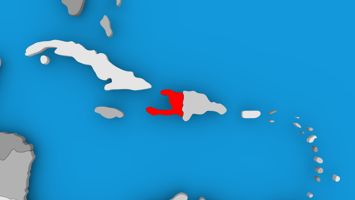A client recently asked me about the difference between French and Haitian Creole. Her Haitian...
How AI Can Revolutionize Education in Haitian Creole
In the heart of the Caribbean, a linguistic gem known as Haitian Creole is spoken by millions, yet it remains largely overshadowed on the global stage. This oversight reflects deeper socio-cultural dynamics. Despite its official status in the Haitian constitution alongside French, Haitian Creole has historically faced discrimination, often perceived as less prestigious than its European counterpart.
This disparity has contributed to its marginalization in global discourse, educational resources, and technological development.
At Creole Solutions, we recognize the untapped potential of this vibrant language. Our vision is one where technology meets tradition, revolutionizing Haitian Creole for a brighter, more inclusive future.
The Haitian Context
Challenges and Opportunities
The language barrier in education is not just a cultural issue; it's a socioeconomic one. UNESCO underscores this point by highlighting that, "education in the mother tongue is a key factor for inclusion and quality learning, and it also improves learning outcomes and academic performance." This is particularly crucial in primary education to avoid knowledge gaps and enhance the speed of learning and comprehension.
In Haiti, where the disconnect between the language of instruction (French) and the home language (Haitian Creole) is stark, addressing this gap is essential for empowering the nation. UNESCO estimates that 40% of the world’s population does not have access to an education in a language they speak or understand, a situation that compromises the ability to learn effectively and contributes to higher illiteracy rates, perpetuating poverty and limiting economic advancement.
The Interplay of Illiteracy and Poverty
In Haiti, where over 95% of the population speaks Haitian Creole, the lack of educational resources in the native language is a gaping chasm. This scarcity directly contributes to the cycle of poverty, as education is a known catalyst for economic and social upliftment. Michel DeGraff, a professor of linguistics at M.I.T. and a founding member of the Haitian Creole Academy, sheds light on this issue in his article for The New York Times. He recounts his own experiences in Haiti, where he was forbidden to speak Haitian Creole at school and was taught to view it as inferior.
This linguistic discrimination, rooted in colonial and neocolonial policies, has perpetuated a system where French, spoken by a small fraction of the population, is favored in education. This policy not only hinders effective learning but also contributes to a broader societal divide. Addressing this need is not just a matter of policy; it's a matter of urgency, as the promotion of Haitian Creole in education is crucial for empowering the nation and overcoming the disastrous consequences of its colonial history.
Challenges Ahead
Developing Educational Materials
While there is a growing recognition of the importance of using Haitian Creole as a language of instruction, challenges remain. Haiti's Minister of Education, Nesmy Manigat, made a significant announcement that Haitian Creole should serve as a language of instruction throughout primary and secondary education. This shift is a commendable step toward a more inclusive education system. However, realizing this vision requires overcoming a critical hurdle: the development of comprehensive and culturally relevant educational materials in Haitian Creole.
As of now, there is still a noticeable gap in the availability of such materials, hindering the full implementation of this policy. Creating high-quality textbooks, digital resources, and curricula in Haitian Creole demands significant resources and expertise. It involves not only translating existing content but also ensuring that it resonates with the cultural nuances and specific educational needs of Haitian students. This multifaceted challenge highlights the necessity for innovative solutions that can accelerate the development and accessibility of educational materials in Haitian Creole.
Harnessing Advanced Technology for Haitian Creole Education
In the field of Haitian Creole education, AI, specifically Natural Language Processing (NLP), is a game-changer. NLP models like BERT and GPT-4 can understand and generate text in Haitian Creole, translating educational content from French or English. AI tailors learning materials to individual student needs, using Machine Learning to adapt content and challenge students.
To create educational materials, AI enriches data with diverse language variations and balances flexibility with rule-based systems. Online learning platforms powered by AI reach students across Haiti, including remote areas, optimizing content delivery based on internet and device capabilities. AI also supports teachers through chatbots and virtual teaching assistants, offering real-time help and training insights. These advancements aim to break language barriers, provide personalized learning, and enhance education access and quality in Haiti.
All Lab
Championing Linguistic Diversity Through Technology
The African Languages Lab, affectionately known as All Lab, stands as a beacon of hope in the realm of linguistic diversity, particularly for underrepresented languages. This non-profit collaborative unites language experts, academics, linguists, native speakers, researchers, librarians, and forward-thinking individuals in a shared mission to elevate awareness and understanding of African languages.
All Lab's approach, leveraging cutting-edge technologies such as NLP and AI, including Machine Translation, serves as an inspiring model for similar initiatives in other languages, including Haitian Creole.

We recently met with Sheriff Issaka at All Lab, who shared his perspective on the role of technology in education for underrepresented languages. He believes:
"Living in a time where it is no longer a question of the existence of extensive educational materials. It is a question of how to localize and disseminate these materials equitably across different demographics and languages, especially historically underrepresented ones. When done right, NLP offers a significantly faster, consistent, and cheaper option. Through the collaborative efforts of grassroots organizations, governments, and international institutions, the reach of such technologies and their corresponding impact on spaces like education can be far-reaching."
AI's Role
Bridging the Educational Gap - Our Ongoing Initiatives
At Creole Solutions, we are actively engaged in harnessing the potential of AI to revolutionize education in Haitian Creole. Through collaborative efforts with technology partners and non-profit organizations in Haiti, we are working diligently to address the pressing challenges faced by our education system.
-
Translation and Localization:
We are currently partnering with technology experts to leverage AI in the translation and localization of educational content into Haitian Creole. This effort goes beyond mere translation; it involves a nuanced adaptation that respects the cultural context and linguistic intricacies of Haiti.
-
Interactive Learning Materials:
Our collaborative projects are focused on developing interactive and engaging learning materials specifically tailored to the Haitian Creole-speaking audience. These materials are designed to foster a deeper connection to the subject matter, thereby enhancing the overall learning experience.
-
Continuous Improvement:
Through AI-powered analytics, we are continuously monitoring and enhancing the quality of educational materials. By analyzing student progress and feedback, we ensure that these materials evolve to meet the ever-changing needs of the learners.
Our Mission
Building a Foundation for Success
As a company specializing in the Haitian language and fervently advocating for education in Creole, our commitment to these initiatives is unwavering. We are dedicated to empowering Haitian students, enhancing their access to quality education, and making significant strides towards breaking the cycle of illiteracy and poverty in Haiti. Our ongoing efforts represent a promising avenue for positive change and a brighter future for all Haitian Creole speakers.





.png?height=200&name=Blog%20Headers%20%20(2).png)
